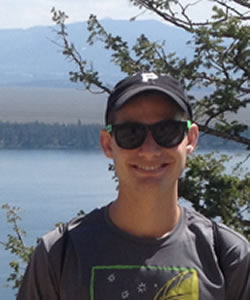Within twenty-four hours of my arrival in France, the country was rocked by the shooting of sixteen people at the headquarters of Charlie Hebdo magazine and at a kosher supermarket. This attack led to massive demonstrations of sympathy and support. In France, millions of people including various world leaders marched to show support for the victims. During the weeks following the attacks, I was amazed by the unity of the people around me and the ubiquity of signs of solidarity.
The attacks had an immediate effect on my life in Lyon, France's second largest city. My university closed all but one entrance and instituted a strictly enforced identification and bag check policy. In addition, public transportation services discouraged customers from carrying large bags. I witnessed a candlelit vigil outside of the mayor's residence, armed security guards protecting museums and synagogues, and “Je suis Charlie” signs on the sides of university buildings, in stores, and in my host family's living room window. Television and Facebook, meanwhile, provided a constant stream of information on the attacks and the ensuing manhunt.
Despite the constant flow of information, my questions were not all answered. What were people really protesting? At first glance, the protests seemed to be against terrorism. The dialogue in France, however, was deeper and seemed to focus on the right to freedom of the press. Over dinner, my host father explained the critical distinction between "irreverence" and "disrespect" in French culture. Irreverence, the right to practice satire and to push socially accepted boundaries, was fought for during the French Revolution and remains passionately defended today. At the same time, Charlie Hebdo is at the far end of accepted satire. The protests were in defense of the right to print satirical comics, but not necessarily in defense of Charlie Hebdo comics themselves.
A few weeks after the attacks, I had an enlightening conversation with a Muslim man who I stopped to ask for directions. When he realized that I was an American, he began to share his point of view. "I am not Charlie and I am not against Charlie," he said. "I am against the terrorists because killing is against the laws of Islam, but I cannot support a magazine that has insulted my religion." Although it is possible to support the magazine's victims without supporting its message, his words highlighted the difficult position of Muslims in France—especially with the death of a Muslim police officer during the attacks.
Finally, the Charlie Hebdo and kosher market shootings have significance for a country that still has issues of anti-Semitism. With the far left speaking out against Israel and the far right against Jews in general, Jews in France are in a difficult situation. The solution, however, is not emigration but greater dialogue with non-Jewish neighbors. The presence of signs at Charlie Hebdo rallies that read je suis Charlie; je suis Juif (I am Charlie and I am a Jew)—as well as Netanyahu's appearance at the Paris rally—represent a step towards a more open discussion of Judaism in secular French society.
And what was Charlie Hebdo's reaction to the (admittedly temporary) outpouring of support for the magazine? One of its editorials says it best:
"Schmuck: 'What are you reading?'
Editor: 'Me? Charlie.'
Schmuck: 'Oh, yes. You know, we are all Charlie.'
Editor: 'No, we're not! You're just an idiot.'"

